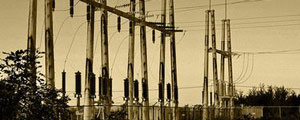
On Saturday, this paper led with a story headlined Power outages wreak havoc about the massive increase in electricity load-shedding which has crippled industrial production and commercial operations, and left households in darkness for the most of the day.
NewsDay Editorial
Business representative bodies say effects are proving to be catastrophic while households, particularly low-income ones, have not been spared either because people have resorted to buying and using gas stoves, generators, firewood and candles, raising the cost of living against the backdrop of static salaries.
Bemoaning that this was pushing labour costs to prohibitive levels, Zimbabwe National Chamber of Commerce vice-president Davison Norupiri said: “We are paying workers who would not have worked. Quite often, they end up working at weekends and get paid overtime.” Indeed, the knock-on effects are disastrous for manufacturing which had started to recover.
Financial losses are but one side of the crisis. The other side to it is that there is shocking — if not criminal — lack of responsibility as the highest levels of government.
There is not a clear and focused problem-solving approach. This country has in the past decade reeled from crisis to crisis, like a patient in a state of chronic poor health. Now the power crisis is with us with no end in sight.
Economic commentator John Robertson blames the crisis on government’s failure to construct more power stations — and quite rightly so because, as pointed out by the Southern Africa Power Pool (SAPP), the crisis was building up over the years.
It shouldn’t have come to this. It didn’t deteriorate overnight. Some people have been sleeping on the job for years because long ago SAPP predicted that there would be a major power deficit and the region had to take appropriate measures to counter this with the governments also strongly advised to take individual steps to forestall or mitigate this.
- Chamisa under fire over US$120K donation
- Mavhunga puts DeMbare into Chibuku quarterfinals
- Pension funds bet on Cabora Bassa oilfields
- Councils defy govt fire tender directive
Keep Reading
SAPP, a group of the national grid utilities in the region established in 1995 under the auspices of Sadc to create a common power grid among member states and a common market for electricity in the Sadc region, warned of this looming but avoidable crisis.
Robertson further pointed out: “I think Mozambique does have sufficient electricity for us to import, but I believe we have not paid them.” Is it solely because of power utility Zesa’s failure to honour its obligations? If not, it’s a national shame.
Now juxtapose this with another report in this newspaper last week headlined $130 million diamonds go missing, then you begin to see that the government can well afford to shoulder some of these huge costs, but for maladministration, grand theft and massive corruption within that is not being tackled with the due promptness and sternness.
Three weeks after President Robert Mugabe publicly fingered former Zimbabwe Mining Development Corporation chairman Godwills Masimirembwa for demanding bribes from foreign investors running into millions of dollars, no head has rolled. The case appears cut and dried for arrest, prosecution and trial, but all is quiet on that front.
As with power, diamonds could also run out with nothing to show for them.
So unless and until this national malaise of policy paralysis and corruption is cured, the power crisis and other grave ills are here to stay — simple as that.











